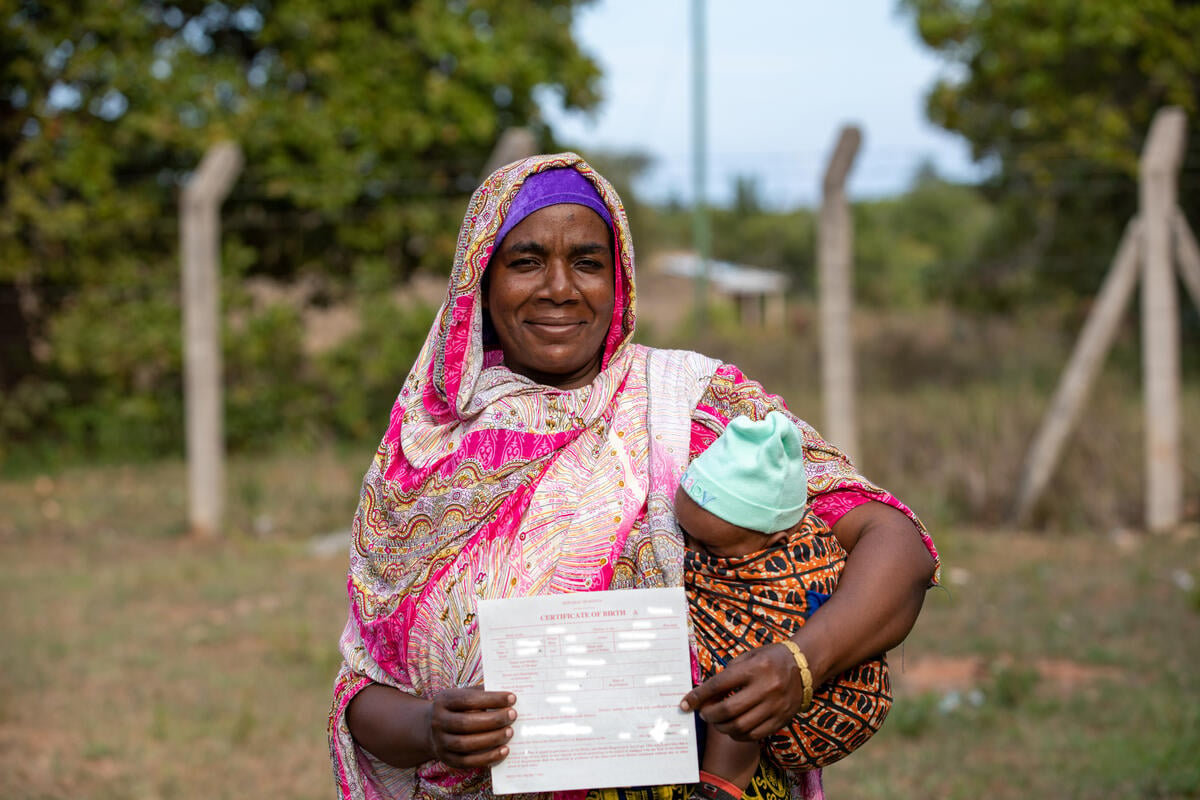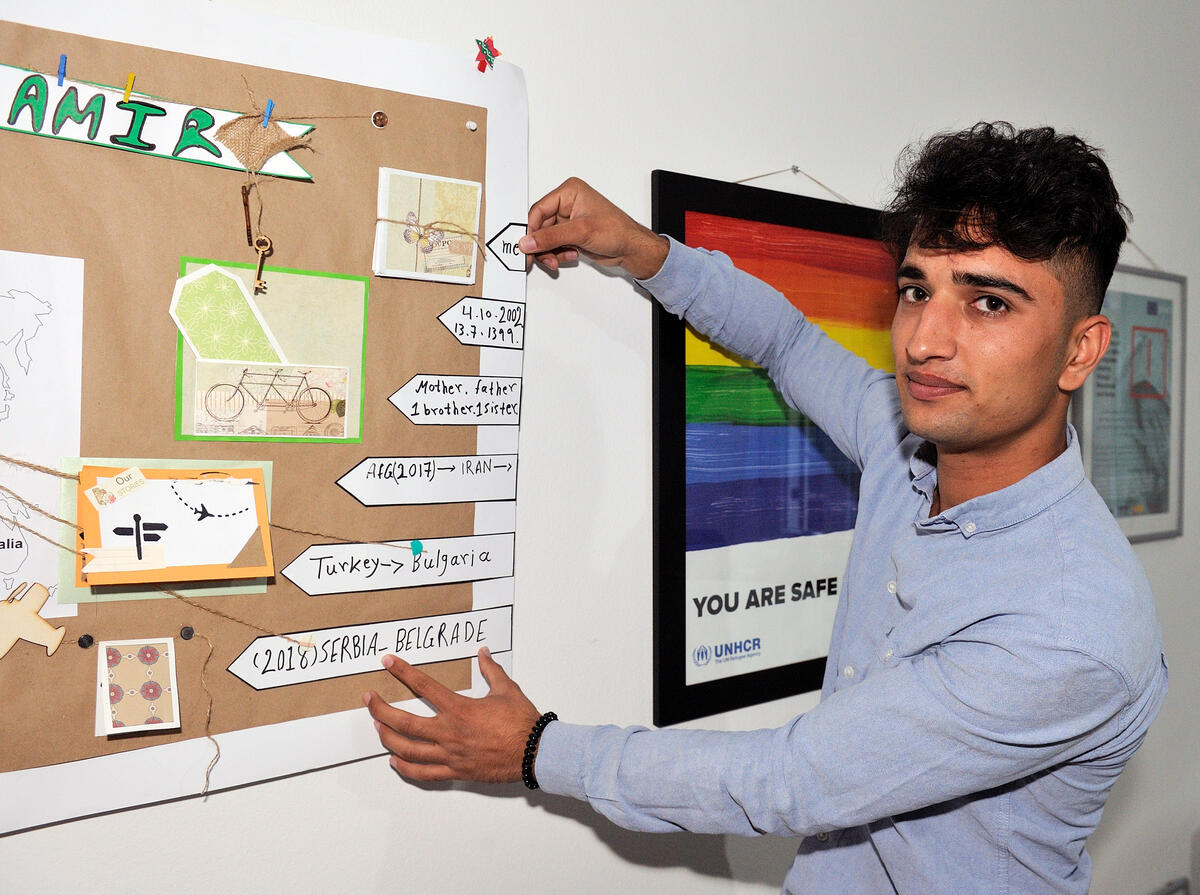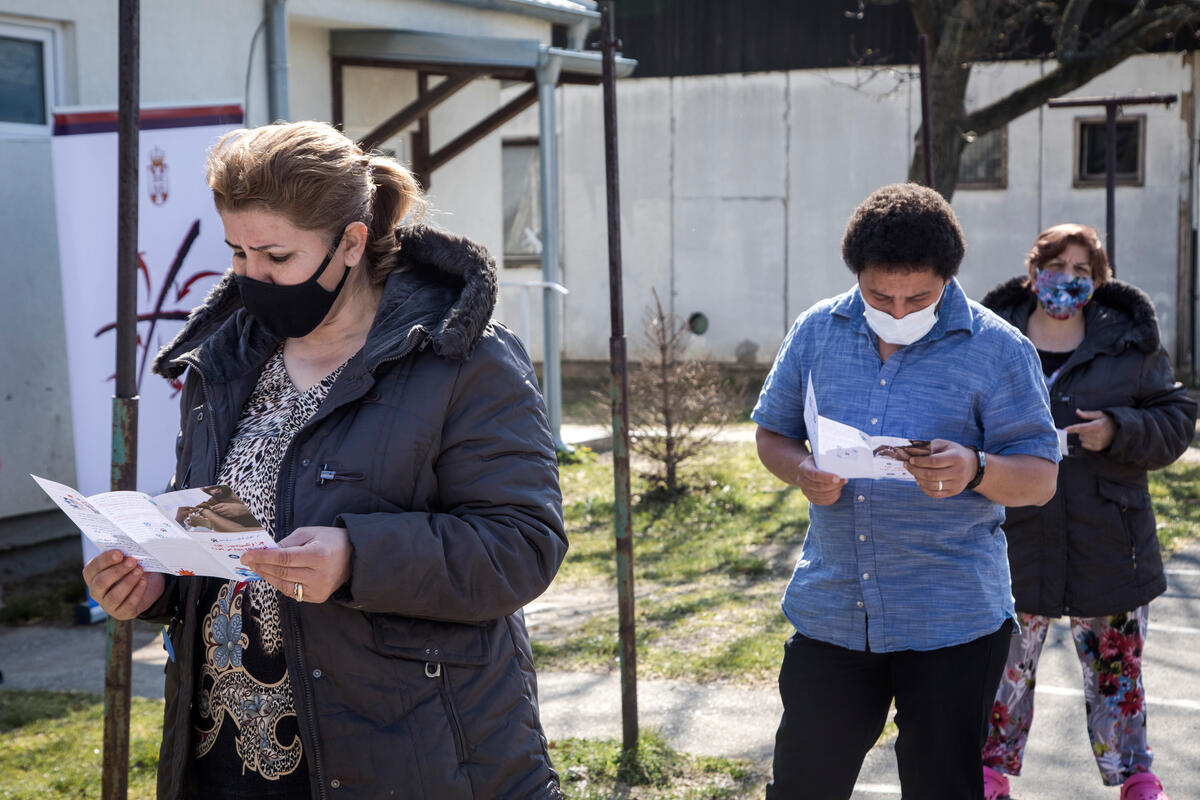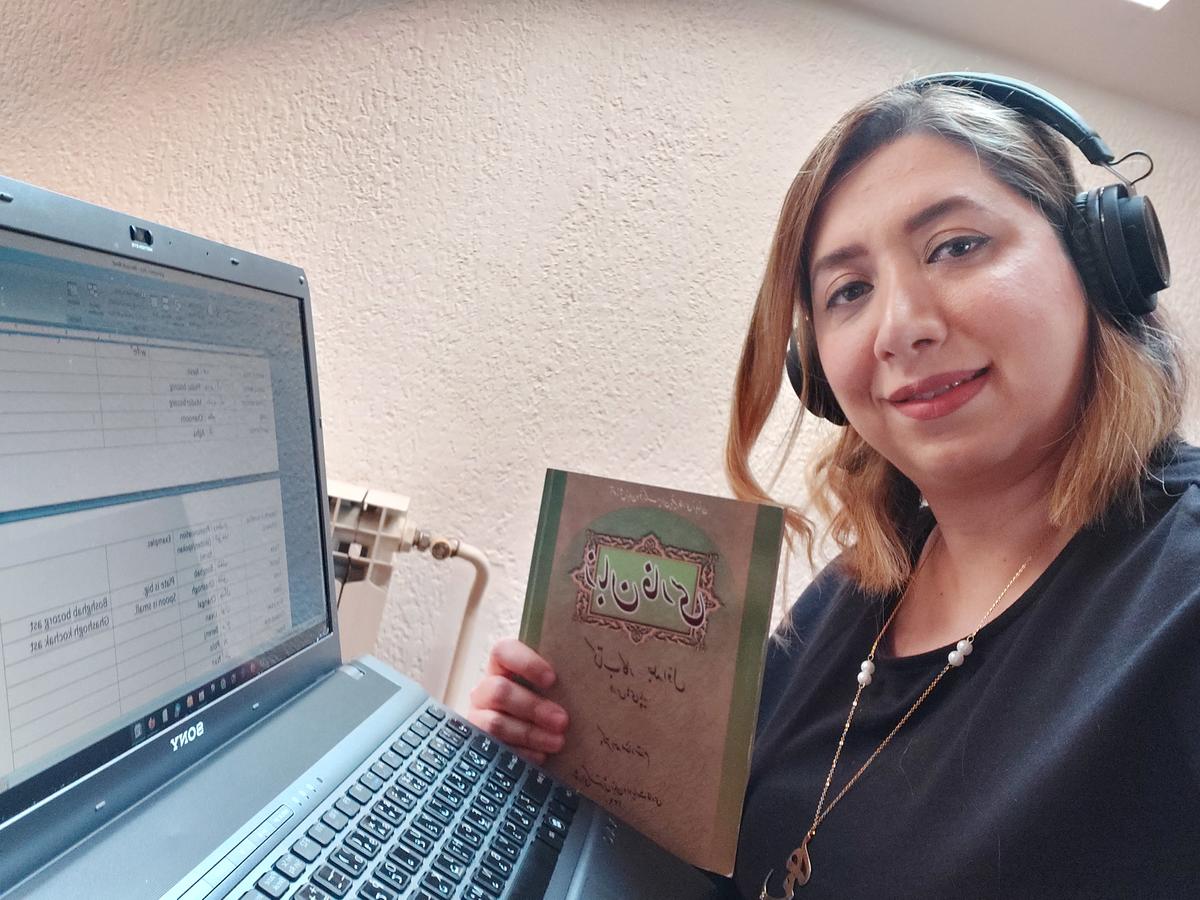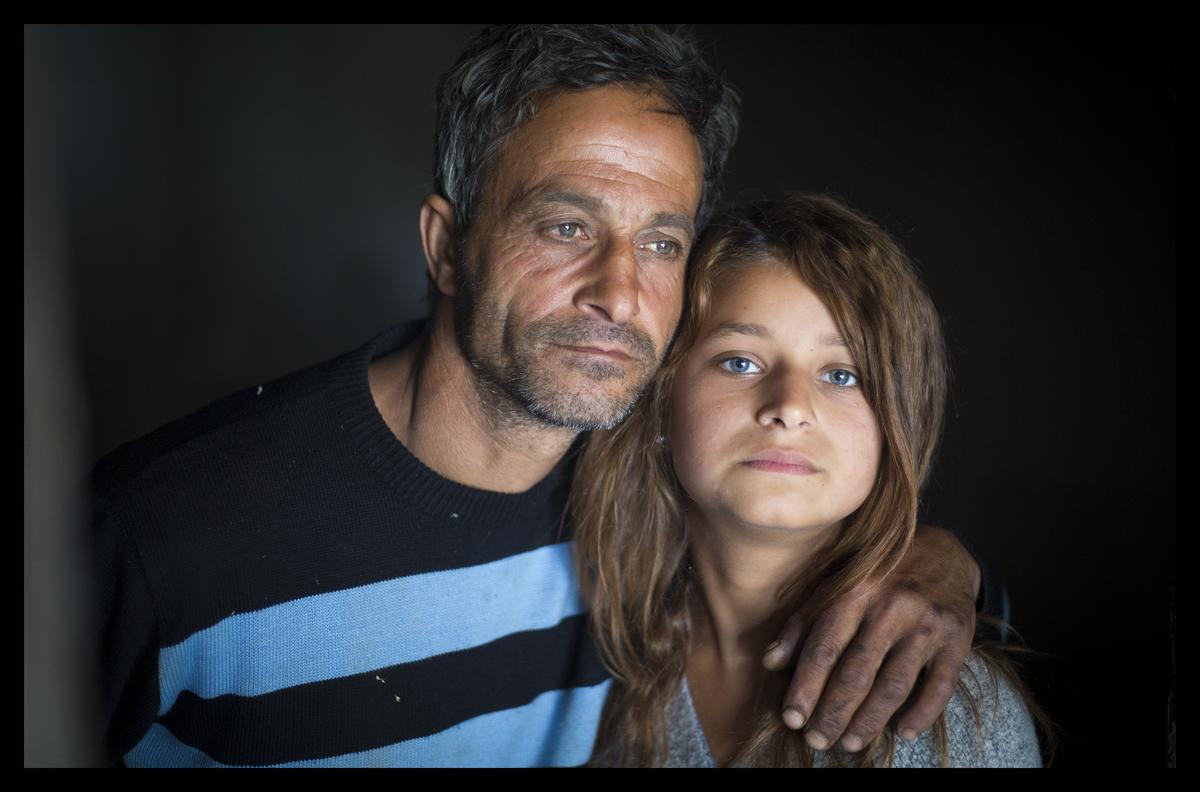Kosovo Crisis Update
Kosovo Crisis Update
Kosovo
The number of spontaneous returns to Kosovo declined on Monday to 29,300 from 34,500 on Sunday and 41,700 on Saturday. It is too early to say whether this decline, which UNHCR has been anticipating, will continue. It may reflect the fact that most of the refugees who have the means to arrange their own return, and who have a place to go, have already returned. The need for organized and assisted repatriation is likely to grow.
The population of refugees and displaced people in Albania, the FYR of Macedonia and Montenegro has fallen to around 312,000, which is well under half of the number (782,000) staying in these countries in the beginning of June when the peace arrangement for Kosovo was concluded. On Tuesday morning UNHCR and IOM organized a second repatriation movement from camps in the FYR of Macedonia. Around 320 refugees returned by bus to Pristina and Urosevac. Organized repatriation from Albania will begin on Thursday. In the meantime, refugees are being moved to a transit facility in Kukes from camps in the south of Albania.
UNHCR staff in northern Kosovo, especially in the Pec area, report that shelter for returnees continues to be the biggest problem. UNHCR's shelter expert estimates that up to 45,000 houses in Kosovo are so severely damaged as to be uninhabitable. Since the UNHCR office opened in Pec just a few days ago, staff have distributed 700 family-sized tents to returnees and are now distributing 500 additional tents which arrived in Pec Monday. Some 16,000 additional tents are on order and expected soon. Meanwhile tents from the camps in the FYR of Macedonia are being refurbished, disinfected and packed by Swiss Disaster Relief for shipment to Kosovo. The first components of UNHCR's shelter kits have arrived in Kosovo and distribution will begin soon.
UNHCR and its partners are stepping up efforts to help the growing number of returnees. Each returnee from the FYR of Macedonia should receive food assistance on arrival. This is provided by the World Food Programme and consists of 12 kilos of flour, 1 kilo of sugar, 1 kilo of beans and 1 litre of oil. Also provided are blankets, mattresses, hygienic kits, jerry cans, candles and plastic sheeting. Returnees from Albania receive aid before departure.
The WFP has brought substantial quantities of food into Kosovo since mid-June and its helicopters are making four flights daily to deliver food to needy displaced people in remote locations not reachable by road. It also delivers 7,000 loaves a bread daily from Kukes to the Prizren area.
UNHCR and its implementing partners have opened eight food distribution centres in urban Pristina, rural Pristina and surrounding municipalities, Pec, Prizren, Urosevac, Djakovica, Gnjilane and the Vucitrn-Kosovska Mitrovica area. More than 60 secondary distribution points have been opened in these areas.
In Pristina, UNHCR's main partner, Action Against Hunger, will fund the local charity, Mother Teresa Society (MTS), in order to open additional 10 micro-distribution points for a two-month period. Urban Pristina has a large transient population which complicates systematic monthly distributions.
Before the war, MTS was UNHCR's main partner in the secondary distribution of relief items. Around 90 percent of the MTS branches and sub-branches are reportedly back in operation. MTS is managing most of the secondary distribution points opened in the eight regional logistical hubs.
Tensions remain high in various parts of Kosovo between Albanians, Serbs and Roma. In Kosovo Polje, just west of Pristina, there are an estimated 2,000-3,000 Roma staying in crowded conditions in a local school. A UNHCR team headed there on Tuesday morning to assess the situation and see what can be done to help the group. In Orahovac there is a group of around 4,500 Serbs, including displaced people from Velika Hoxa, also sheltering in very difficult conditions. The group is demanding safe passage out of Kosovo. A group of Serbs is also still sheltering in a monastery near Pec.
FYR of Macedonia
With the large-scale departure from camps, there are increasing concerns about the security of those remaining, as well as of agencies and property. Nonetheless, the overall atmosphere in the camps remains calm, with the population declining daily. Camp clean-up and site restoration are increasingly becoming relevant issues. UNHCR, WHO and NGOs with lead responsibilities for sanitation and water supply will meet soon to develop, together with the Skopje government, a plan of action for the post-camp phase. The German agency GTZ and JICA (Japan) have expressed an interest in helping with this matter.
Two mine awareness teams from the NGO HELP, funded by UNHCR, have started daily mine awareness activities for the approximately 30,000 refugees remaining in camps in the FYR of Macedonia as well as for those staying in host families and for agency staff. UNICEF's mine awareness activities continue as well.
NGOs in the health sector, together with UN partners, have worked out guidelines for health-related actions during repatriation. Chronically ill patients should receive at least 30 days supply of necessary drugs (for instance in cases of cardiovascular or respiratory problems, epilepsy or mental illness) before they repatriate. Special attention will be given to insulin-dependent patients.
Recreational activities undertaken by the NGO "FilmAid" continue, with films being shown on a big screen in Cegrane camp. UNHCR is now planning to use this medium for mine awareness information as well.
UNHCR information on repatriation issues is now being broadcast by 9 Albanian-language radio stations in the FYR of Macedonia, as well as printed in local newspapers. This information campaign is supported by the UK DFID and carried out with the Switzerland-based NGO, Media Action International.
Albania
Spontaneous returns from Albania declined slightly on Monday, with 17,400 refugees returning, compared with 18,400 on Sunday and 22,300 on Saturday.
Preparations are underway for the commencement this week of organized returns from Albania. UNHCR staff are currently identifying candidates in locations throughout Albania who wish to return to the three targeted cities: Prizren, Uosevac and Pristina. Some refugees are already being moved up to Kukes in preparation for departure. Six way stations along the roads to Kukes will provide water, food, sanitation and medical support, as well as mine awareness documents to the travellers.
Before departure the returnees will receive food packs for the journey as well as food rations (flour, sugar, beans and oil from WFP) and other articles to cover initial needs on return home. Refugees may also take with them the tents in which they sheltered in Albania.
Information from UNHCR on repatriation is being broadcast on Radio Tirana as well as on local radio stations, through a programme carried out with journalists from the NGO Media Action International and supported - as in the FYR of Macedonia - by the UK's DFID.
Republic of Montenegro
With the lifting of the "state of war" in the Federal Republic of Yugoslavia, the general security situation in Montenegro is improving. Yugoslav military checkpoints at the Albanian border (Bozaj crossing) have disappeared, fences and wire have been removed from the Kumbor checkpoint, and all border crossings are now open and operating normally.
On Monday, around 3,700 displaced Kosovars left Montenegro to return permanently to Kosovo, compared with over 5,000 on both Saturday and Sunday. This reflects the impression of UNHCR staff in Montenegro that many of those with the means to return and in particular with their own vehicles have already departed. The displaced people remaining in Montenegro, and especially in the coastal municipality of Ulcinj, will need assistance to go back. Most of them come from localities not yet on the list for organized return, and in particular the Pec and Mitrovica areas in northern and north-western Kosovo, zones which are heavily damaged.
The population of displaced people in the camps and factories in the border municipality of Rozaje has declined dramatically, with well under 1,000 persons remaining.
However, more and more Serbs and Montenegrins from Kosovo are approaching UNHCR in Podgorica for assistance, help in locating missing relatives, property issues and advice on resettlement prospects. Bitterness and disappointment are the prevailing tones.

